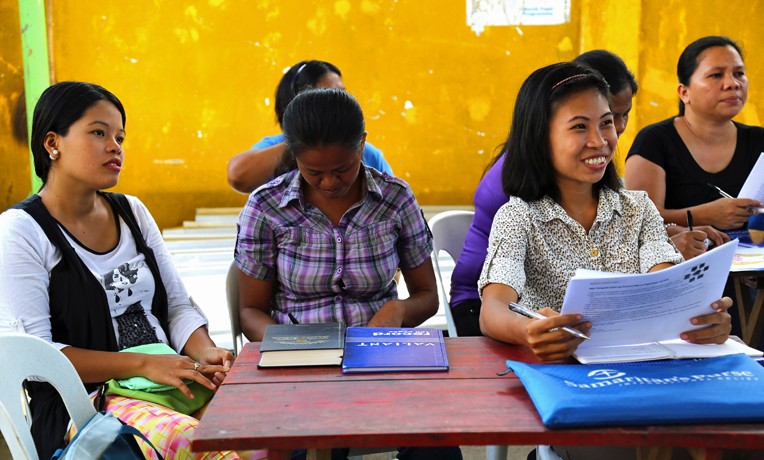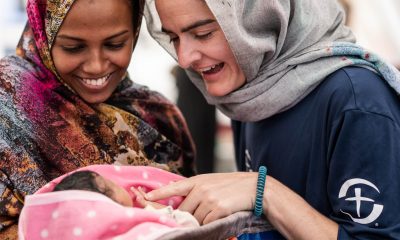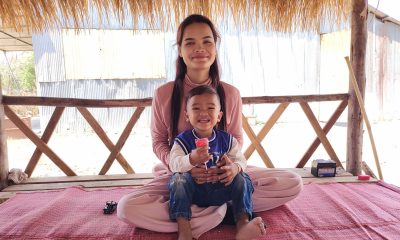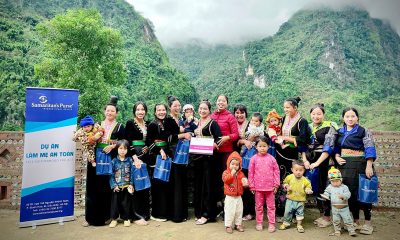A story from mother-to-mother nutrition support groups
The clouds hang low and the coconut trees, bordering expanses of paddy fields, stand tall. Although there’s so much beauty in this land, the real beauty lies in the people. While the extent of my Waray-Waray is “salamat” (which means “thank you”), the universal language of love is easily understood and prevalent at the mother-to-mother support groups that we’re visiting today. The groups promote healthy feeding practices for babies and children.
As I sit and observe the proceedings of the group, the women joke and laugh. The Leader Mother, chosen by her peers, is an older woman. Today, she teaches about breast-feeding challenges.

Micailah with equipment from the mother-to-mother support group
One of the younger mothers has a particularly painful abnormality that prevents her from successfully feeding her child. She voices her concerns about the issue and the difficulties she has faced. One of the Samaritan’s Purse trainers shares about a quick and painless procedure to correct the problem and offers to perform the procedure there with the group.
The women gather around the young mother in support. It’s evident that she’s shy and nervous. Her mood soon changes as one of the other mothers opens her umbrella in a playful manner, giving her more privacy. It’s a quick, painless, and effective procedure. The other mothers support the young mother, and, through community, unity, and joy, the group is able to uplift her as well as learn from her.
“Therefore if there is any consolation in Christ, if any comfort of love, if any fellowship of the Spirit, if any affection and mercy, fulfill my joy by being like-minded, having the same love, being of one accord, of one mind” (Philippians 2:1-2, NKJV).
With every new experience in the Philippines and every visit to the field, I fall deeper in love with Filipino culture. I hold this particular experience in a high regard, as it’s a clear depiction of how we are intended to live in Christ with others: living in community, celebrating unity, and carrying each other’s burdens to the top of the mountains as we walk along the valleys of this imperfect world.






